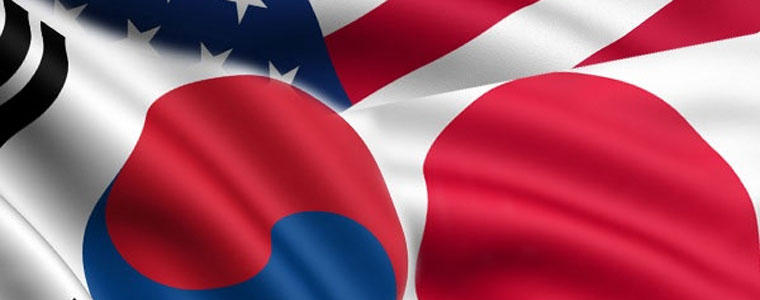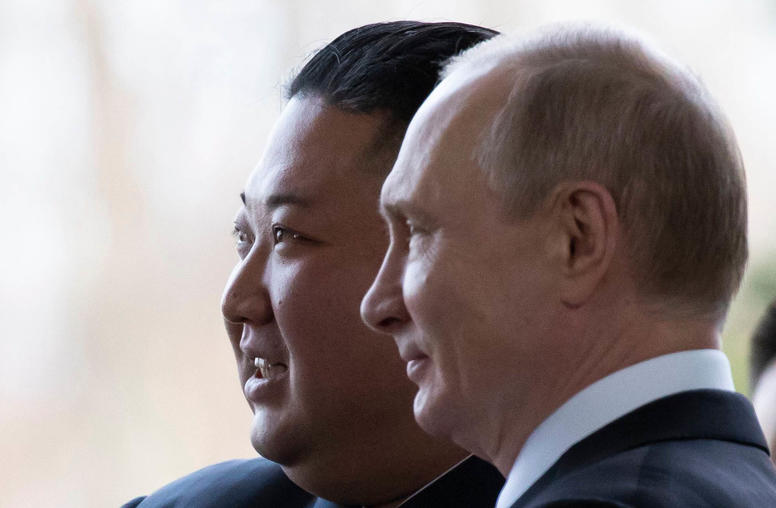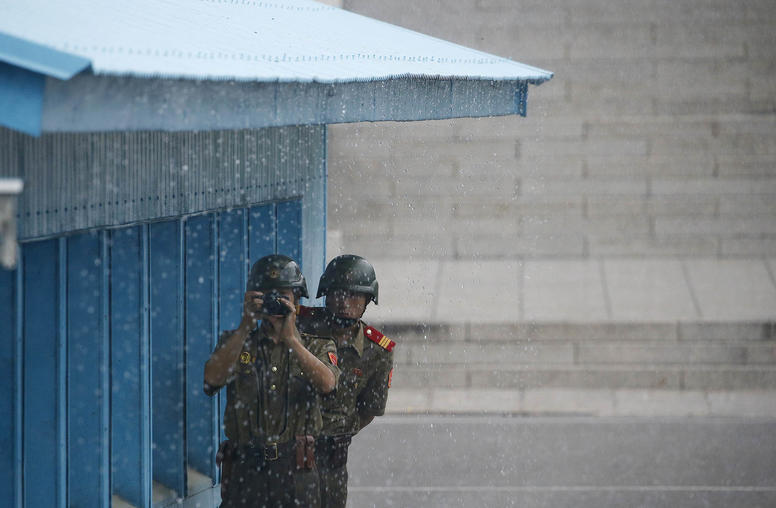USIP Hosts Round of Northeast Asia Track 1.5 Dialogue
The U.S. Institute of Peace (USIP) this week hosted the eighth round of the Trilateral Dialogue in Northeast Asia, a Track 1.5 project involving current and former senior policymakers and military officials from the United States, South Korea and Japan. The discussions delved into a variety of security and diplomatic topics, including historical tensions between South Korea and Japan, and “achieved candor in a relaxed and truly non-defensive environment,” said one of the participants, Stephen Hadley, USIP’s senior advisor for international affairs and a former U.S. national security advisor.

Hadley spoke at a public forum on July 17 capping this week’s trilateral sessions. He said part of the conversations focused on “the elephant in the room”—tensions between South Korea and Japan rooted in a tangled and sensitive history of relations that can make coordination on security strategy between them and their U.S. ally more difficult. Said Hadley, the two need “to find a way to work through history and nationalism issues” so that they do not “get in the way” of progress on security, economic and political relations. Leaders in both countries need to show their respective publics that there is “a big upside” to moving beyond historical grievances, he said.
Hadley described the forum as offering an opportunity for unusually frank exchanges on the political challenges to overcoming those tensions so that policy cooperation in Northeast Asia can be deepened.
USIP organizes the Trilateral Dialogue in Northeast Asia with South Korea’s Institute of Foreign Affairs and National Security and Japan’s Institute for International Policy Studies. The program aims to foster the development of policy ideas and proposals through a more flexible, unofficial channel of communications for officials and nongovernmental specialists, several of whom are former senior policymakers. The term “Track 1.5” refers to the involvement of current and former policymakers and military officials; “Track 2” dialogues bring in only nongovernmental participants. The Northeast Asia Track 1.5 effort, officially launched in 2008, is co-directed by USIP’s senior Asia advisor, John Park. It has drawn on officials from the U.S. State and Defense departments, the National Security Council and Congress, along with their counterparts from South Korea and Japan.
Chun Yungwoo, a former South Korean presidential secretary for foreign affairs and national security, pointed out that the Track 1.5 dialogue at USIP offered a unique format where “I can speak my mind” and where “I’m not bound by government instructions.” He called the need for trilateral cooperation “greater than ever.”
Chun referred to “the ghost of history” in South Korean-Japanese relations but also said the two countries share a broad range of security interests and values, including human rights, market economy, and democracy. He said those common interests and values mean there are “certain limits beyond which we won’t go.” In practice, these limits constitute a buffer that helps the two U.S. allies manage disagreements between them. Chun said he was more concerned about Japanese-Chinese tensions, particularly in the East China Sea, which have produced “some dangerous moments in the last year.”
Miyake Kunihiko, a former senior Japanese Foreign Ministry official and research director of the Canon Institute for Global Studies, discussed the challenges of preventing popular nationalism in both Japan and South Korea from harming ties. “Governments are finding it more and more difficult to handle the negative aspects of nationalism,” Miyake said. What is needed, he remarked, is “not narrow-minded nationalism” but rather “responsible and healthy patriotism with good statesmanship.”
He said the three countries should view East Asia and the Middle East as increasingly part of a single strategic theater, and that even with the U.S. “rebalancing” toward Asia the United States at times will need to concentrate on Middle East issues in ways that call on its Asian allies to provide more of their own deterrent capability.
All three panelists discussed the North Korean nuclear challenge as a focal point of current strategic cooperation. Hadley said “we’ve got to convince the current regime that the current course leads to ruin.” In the long term, Pyongyang needs to be denied any benefits from its nuclear programs but also needs to be offered a better future if it is “willing to change.”
Chun said it was key “to prevent China from undercutting our efforts” on North Korea and that a quiet “strategic conversation” with Beijing—North Korea’s most important backer—would be important to “ensure that China’s concerns [about an eventual demise of the North Korean regime] are handled properly.” He added, “China knows they are the biggest loser from North Korea’s provocations.” Miyake said that North Korea is “becoming a real threat” to Japan’s security and that with the succession of the young Kim Jong Un to power—following his father and grandfather—“our biggest worry is whether the grandson really understands this is just a small country.” Miyake added that Japanese defense measures with respect to North Korea “are tightly connected to the defense posture of South Korea.”
Explore Further
-
A news feature on a 2011 Trilateral Dialogue session
-
Further coverage of Trilateral Dialogue activity in Asia
-
A recent Olive Branch post featuring analysis by John Park



